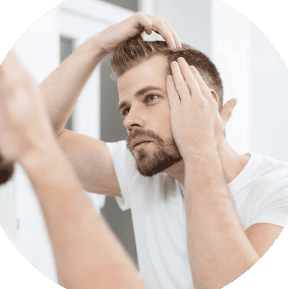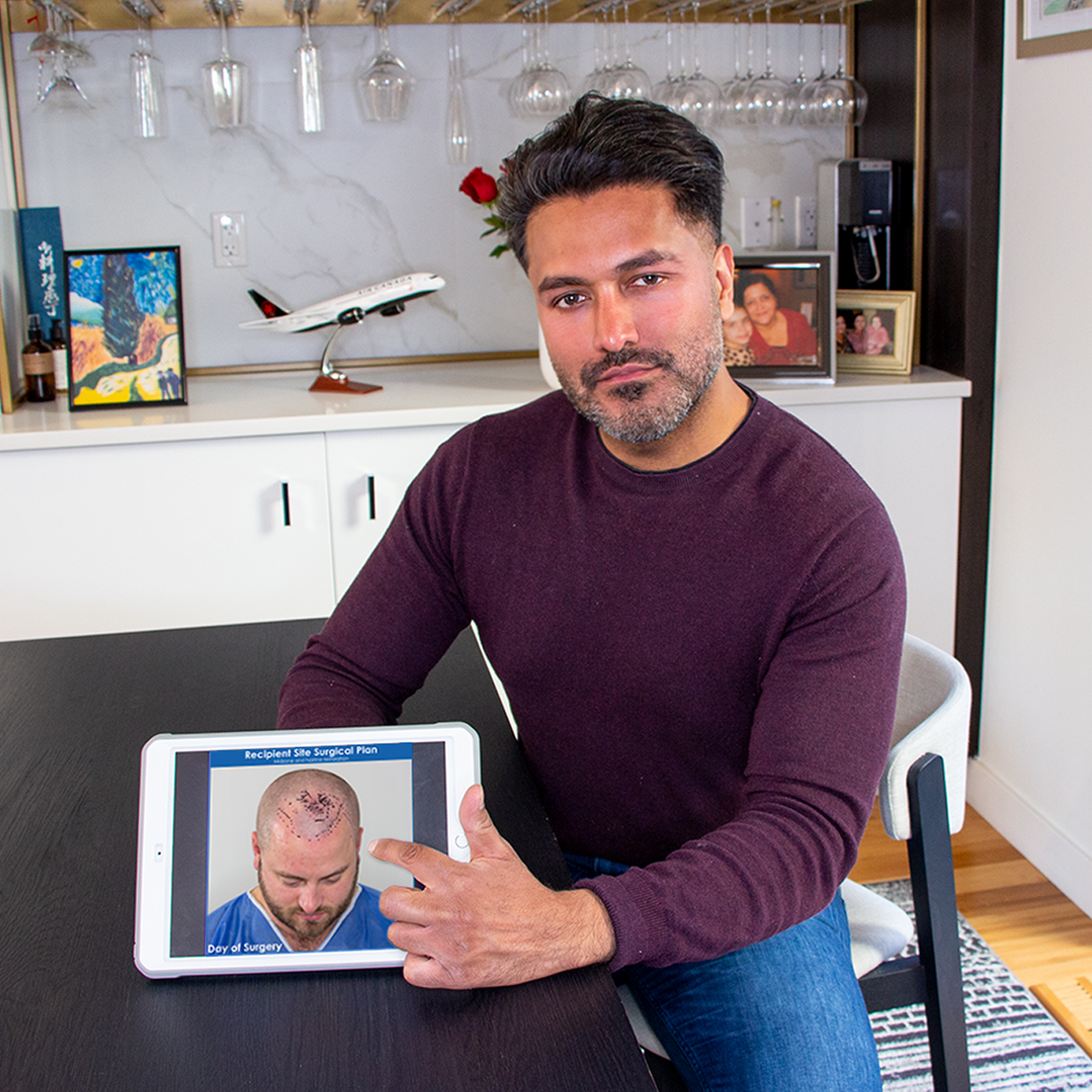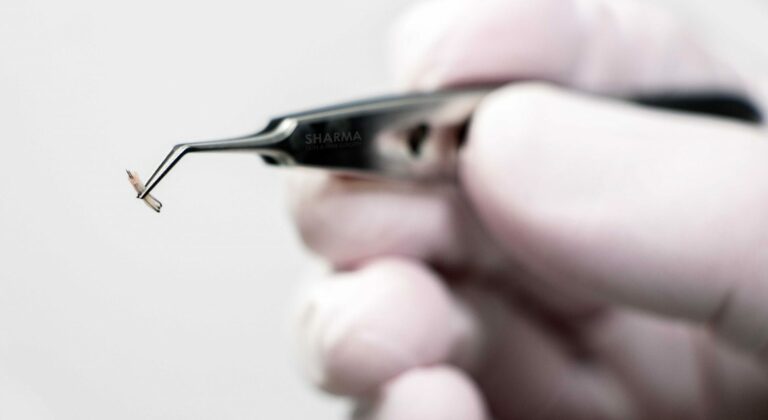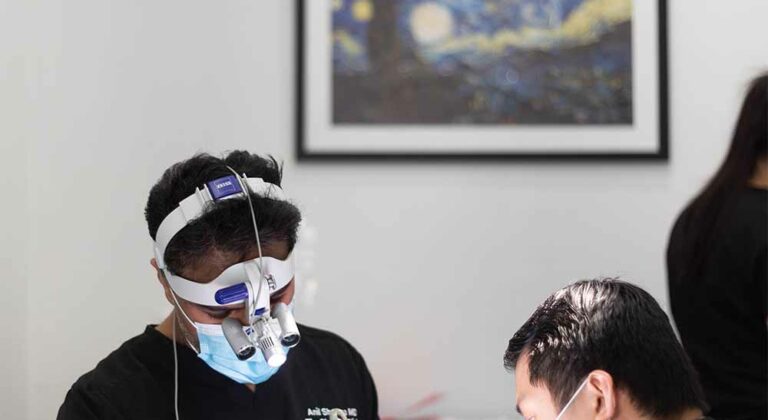Hair loss can be a deeply distressing experience, affecting both self-image and confidence. For many, hair transplants offer a promising solution. However, the timing of this procedure plays a crucial role in achieving optimal results.
In this comprehensive guide, we’ll explore the intricate factors that influence the ideal age for a hair transplant and discuss potential limitations for those considering the procedure later in life.
Factors influencing hair transplant decision-making
When considering a hair transplant, several critical elements come into play. One of the most significant factors is the progression of age-related hair loss. This journey differs between men and women and evolves over time.
Male vs female hair loss
For men, pattern baldness often begins its subtle march in the late teens to early twenties. Research paints a stark picture: by age 30, about a quarter of men show noticeable signs of male pattern baldness. This number leaps to around two-thirds by age 35. Women, on the other hand, may start to notice thinning hair in their twenties or thirties, but the issue often becomes more pronounced after menopause.
To better understand and classify male pattern baldness, professionals often turn to the Norwood scale. This scale outlines the progression from minimal hair loss to extensive balding with limited remaining hair. Understanding these patterns is crucial in determining the best timing for a hair transplant procedure.
Psychological and emotional impact
Beyond the physical aspects, the psychological and emotional toll of hair loss cannot be understated. Research has consistently shown a correlation between hair loss and decreased self-esteem, increased anxiety, and in some cases, depression.
Society’s perception of a full head of hair as a symbol of youth and attractiveness adds another layer of stress for those experiencing hair loss. Many individuals seek hair transplants not just for aesthetic reasons, but to regain comfort and confidence in both personal and professional settings.
Discuss your hair loss with Dr SharmaWhat is the ideal age for a hair transplant?
While there’s no one-size-fits-all answer to the perfect age for a hair transplant, different life stages present unique advantages and challenges.
| Early 20s | Those in their early twenties might be tempted by the allure of preemptively addressing hair loss and enjoying an extended period with results. However, this eagerness comes with its own set of challenges. The unpredictable nature of future hair loss patterns at this age might necessitate multiple procedures over time. |
| Mid to late 20s | As individuals approach their late twenties, hair loss patterns become more established, making it easier to anticipate future needs and plan for hair restoration. However, the risk of continued hair loss remains, necessitating ongoing assessment. |
| 30s and 40s | The thirties and forties often emerge as a sweet spot for many considering hair transplants. By this time, hair loss patterns have generally stabilized, and individuals have developed a mature perspective on their long-term aesthetic goals. The main challenge at this stage is a slight reduction in donor hair density, but for many, the benefits outweigh this concern. |
| 50s and beyond | For those in their fifties and beyond, the decision to undergo a hair transplant takes on new dimensions. On one hand, these individuals benefit from a fully matured hair loss pattern and realistic expectations based on long-term experience. However, they may face challenges such as a potential decrease in overall hair density and the possibility of an extended recovery period. |
When is it too late to get a hair transplant?
Age is not a definitive barrier to hair transplant candidacy, but it does introduce additional factors to consider.
Individuals should be in good physical condition to undergo any surgical procedure. Age-related health conditions, such as cardiovascular disease or diabetes, can influence both surgical suitability and recovery.
Additionally, certain medications commonly prescribed to older individuals may interact with the transplant process or healing. These factors necessitate careful evaluation and consultation with healthcare professionals to determine an individual’s eligibility for surgery.
The condition of one’s hair and scalp also plays a pivotal role. The success of the procedure largely hinges on the quality and quantity of donor hair available. Age-related thinning in donor areas may limit graft availability. Meanwhile, scalp elasticity, which tends to decrease with age, can affect both the healing process and the natural appearance of transplanted hair.
It’s worth noting that the concept of being “too old” for a hair transplant is highly individual. A healthy person in their seventies with adequate donor hair might be a more suitable candidate than someone in their fifties grappling with significant health issues and limited donor hair.
The importance of professional consultation
The decision to undergo a hair transplant, regardless of age, should be made in consultation with a qualified hair restoration specialist.
At The Sharma Clinic, we can provide invaluable insights by conducting a thorough evaluation of hair loss patterns, assessing the quality and quantity of donor hair, and considering overall health and potential risk factors. Based on this comprehensive analysis, we develop personalized treatment plans with realistic outcome expectations.
BOOK NOW
Talk to a Hair Transplant Expert
Are you looking for the most effective treatment plan to reverse the effects of hair loss? Dr. Sharma has a long-lasting commitment to offering the best services in the industry. Not only is he experienced with hair loss treatment, but he is passionate about helping each patient receive excellent results.

SOURCES
- https://www.ncbi.nlm.nih.gov/books/NBK278957/
- https://pubmed.ncbi.nlm.nih.gov/18044135/
- https://www.ncbi.nlm.nih.gov/pmc/articles/PMC1261195/
- https://pubmed.ncbi.nlm.nih.gov/1188424/
- https://pubmed.ncbi.nlm.nih.gov/21792780/
- https://pubmed.ncbi.nlm.nih.gov/24017988/
- https://pubmed.ncbi.nlm.nih.gov/12533155/
- https://pubmed.ncbi.nlm.nih.gov/28349362/
- https://pubmed.ncbi.nlm.nih.gov/26574302/
- https://pubmed.ncbi.nlm.nih.gov/26370653/
Share this:
Medically reviewed by
Updated on
Have a question?
Find out how we can help you look feel your absolute best
Contact us 780-476-7970


